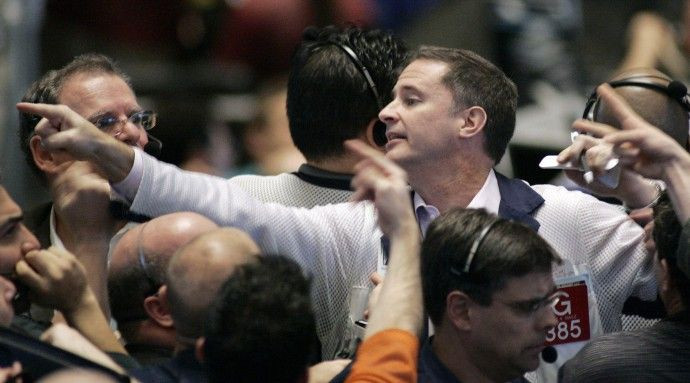2010 a hard act for U.S. bonds to follow

U.S. bonds have performed very well throughout the year as investors -- disdainful of most stocks and skeptical about the global economy -- have poured in enormous amounts of money into fixed-income securities and bond mutual funds.
Indeed, according to the Investment Company Institute, through the end of October, taxable bond mutual funds and municipal bond mutual funds have together received about $267-billion in net new cash flow, while stock funds have lost almost $30-billion.
However, investors' affection for bonds might have petered out about eleven weeks ago -- Treasury yields have risen ever since, while cash flows into bond funds appear to have subsided. As more traders seem to think that the economy will not sink into recession again, nor will deflation raises its ugly head, some optimism about stocks has finally emerged.
Concurrently, as the Federal Reserve created billions of dollars of 'instant money' (via two rounds of quantitative easing), in tandem with the extension of tax cuts and unemployment insurance -- the federal deficit will balloon by another $900-billion in just two years, raising grave questions about the financial health and fiscal discipline of the government. (The federal deficit-to-GDP is now at about 8.8 percent and total federal debt-to-GDP clocks in at 83 percent).
Bond investors, who tend to be older and more conservative, simply do not like excessive government spending.
Consequently, many observers believe the bond bull has run out of steam, although a 'pop' in the bond bubble is probably unlikely.
Safe-haven buying has brought U.S. yields down this year, but as Europe and the U.S. get back on track finally after the worst financial crisis since the Great Depression, bond yields are going to move higher and capital gains could turn to capital losses, said Chris Rupkey, chief financial economist at Bank of Tokyo-Mitsubishi UFJ.
Abigail F. Doolittle, the founder of Peak Theories Research, a research firm based in Albany, N.Y., is quite bearish on bonds.
Bonds are not a good place to be in next year, she declared.
Yields are rising and the bull market in bonds is clearly breaking down. Even if yields were to remain flat, there is just no spread, and no trade left in the bond market. The spread between Treasuries and comparable corporate bonds is too narrow and highly unattractive.
She also noted that with the earnings yield on the S&P 500 index at 6.5 percent and the Treasury yield at 3.5 percent, essentially stocks are cheap and bonds are expensive.
However, Joseph M. Balestrino, fixed-income market strategist at Federated Investors in Pittsburgh, who does not thinks bonds were ever in a bubble, explained that rising bond yields simply reflect a new economic reality.
[Treasury yields] are going up because things are getting better, he said. The economy appears to be improving, earnings are robust, demand seems to be picking up and credit spreads have been narrowing. This is all normal stuff, it's all happening in a noninflationary fashion and it should be viewed as particularly beneficial to higher-risk asset classes.
Michael Yoshikami, president of YCMnet Advisors in Walnut Creek, Cal., also thinks talk of an end of the bond rally is premature.
Bond will come under pressure next year, but I can foresee no dramatic collapse as interest rates remain low, he said.
Given the benign outlook, interest rates will probably not rise until sometime in 2012. Bonds certainly won't rally, but I don't think they'll incur major losses either.
Municipal bonds have come under attention lately as banking analyst Meredith Whitney made headlines by warning that up to one-hundred U.S. municipalities will probably default next year, leading to a collapse in muni bonds.
Jack Bauer, managing director of fixed income at Manning & Napier Advisors in Rochester, N.Y, points out that while he was overweight in Build America Bonds (BABs) in the first half of 2010, he has since scaled back his exposure there.
The muni bond market is facing some unique pressures, he said. The expiration of the BABs program, as well as the extension of tax cuts make them less attractive as a group.
Nonetheless, looking out into next year, he asserted, there could be attractive individual opportunities in muni bonds, as there will be with corporates.
One particularly intriguing segment of the fixed-income universe are mortgage-backed securities -- those once-toxic assets that were wrapped up in extremely complex investment instruments backed by subprime home loans which were widely blamed for implosion of the U.S. housing market, and nearly toppled the entire U.S. banking system.
Even though housing prices remain weak and are unlikely to rebound anytime soon, strategists at UBS think mortgage-backed securities may again become an attractive investment. Since banks have imposed tighter lending standards, mortgage-backed securities now offer relatively less risk.
In fact, UBS strategist Michael Schumacher recently noted that banks have been big buyers of mortgage-backed securities. Moreover, Steven Schwarcz, a law and business professor at Duke University, has argued that mortgage-backed securities are undervalued.
It will be interesting to see how mortgage-backed securities (which have lagged other bond products in 2010), fare next year.
© Copyright IBTimes 2024. All rights reserved.





















